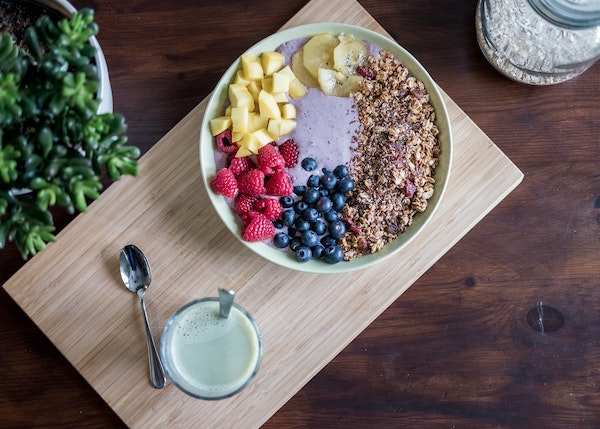
New year, new diet?
Lots of us make big plans to change the way that we eat and live as part of our New Year’s resolutions, but few people keep these changes for the long haul (just 77% after one week, and just 19% after two years, according to a longitudinal study). Better eating leads to big benefits though, and there’s good reason to seek out methods that will keep your new, healthy eating habits going for the long run.
First, the good news. If you’re struggling to maintain your diet changes, it’s probably not you—it’s your approach. Failure to maintain your healthy eating resolutions has a lot less to do with individual willpower and a lot more to do with how we implement changes and how we sustain them as the days, months, and years go by.
What this means is that if you want to maintain your diet changes in the new year, you’re going to have to make smart, realistic decisions about what those changes are in the first place. By setting reliable expectations—instead of just saying you’re “going to eat better” or you’re going to stop eating all junk food or sugar—you can create long-lasting change that’s a lot more manageable for both body and mind.
So, where do you start? Here are our top tips for making New Year’s diet changes that you can actually stick to.
Don’t skip meals
Skipping meals may seem like a simple way to reduce your daily caloric intake, but don’t fall for the trap. When you wait too long in between meals or snacks, you deprive your body of its essential energy and nutrition needs. Skipping meals can also lead to a lot of other unintended consequences, including increased anxiety, irregular digestion, and heightened cravings for sugar and carbs. Yikes.
Make it simple: Eat five to six small meals a day instead of three big ones to spread out the enjoyment and ensure you’re getting what you need throughout the day.
Eat more nuts
Go nuts when it comes to your diet, particularly with super healthy nut varieties like almonds, cashews, and pistachios, all of which offer a big dose of protein, fiber, and crucial vitamins and minerals in one tasty handful. They’re a lot more filling than other grab-and-go snacks, and they’re easy to keep at your desk, in your car, or anywhere else you tend to reach for non-ideal quick fixes.
Make it simple: Try cashews as a snack if you’re craving something rich. They’re naturally buttery in flavor and texture, and are chock full of heart-healthy fats and protein.
Reduce your alcohol intake
Drinking too much can have a negative effect on both body and mind. And in addition to being a highly caloric activity on its own, drinking can also lead to the mindless consumption of extra calories that you might not have consumed otherwise (12am pizza, anyone?). You don’t need to go stone cold sober, but you should evaluate whether drinking is derailing your diet plans and look for ways that you can cut back.
Make it simple: Keep alcohol out of the house so that drinking becomes a special occasion thing instead of an everyday thing.
Get in your omega-3s
Omega-3 fatty acids are a type of healthy fat with a huge range of benefits, from improving eye and brain health to lowering your levels of bad cholesterol. Nuts (see tip #2) are packed with them, as are other nutritious choices like fish and other types of seafood, plant oils, and edible seeds. And the more omega-3s that you eat, the more benefits that you’ll get as a result.
Make it simple: Top your favorite meals with omega-3 rich foods like chia seeds or walnuts. You’ll get more of the good stuff without having to think too much about it.
Cut back on meat consumption
In a perfect world, we’d all eat a plant-based diet to maintain optimal health. In the real world, it’s hard to say goodbye to burgers, steaks, and other meat products, and a vegetarian lifestyle isn’t always accessible for everyone or every budget. If you’re not ready (or don’t think you’ll ever be ready) to go full veggie though, you can still cut back on meat for your health.
Make it simple: Choose just one day a week to eat totally meatless, or more, if you’re up for it! Use the time to experiment with plant-based recipes and/or meat alternatives—you may just discover they’re a lot more delicious and exciting than you’d thought.
Cut up your fruits and veggies as soon as you get home from the store
This shortcut can really make a difference in ensuring that you get your recommended daily intake of fresh produce in (current recommendations are four servings of fruit and five servings of vegetables a day). By prepping your picks right away, you make it a whole lot easier to conveniently grab items throughout the day—and more likely that you actually will.
Make it simple: Store your cut up produce in clear containers to bring more color to your fridge and take the guesswork out of figuring out what’s available.
Healthy eating is easier than you think! Follow the tips above and you’ll be guaranteed to see positive results.
